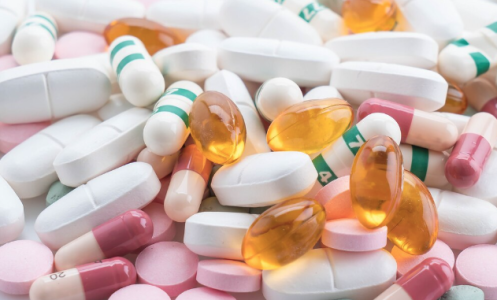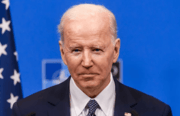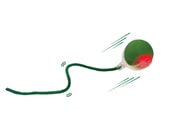Crisis alert: TGA issues urgent warning about shortage of essential medicines
By
VanessaC
- Replies 56
Health issues can be extremely stressful, and the inaccessibility of medication should be the least of any person’s worries.
However, Australia is reportedly grappling with a critical shortage of essential medicines, which has prompted the federal government's Therapeutic Goods Administration (TGA) to issue an urgent warning.
The shortage is not limited to a handful of drugs but extends to a staggering 41 critical medications, affecting a wide range of treatments from surgery to rare conditions.
The overall shortage encompasses more than 400 medications, with over 60 anticipated to go into shortage soon and over 250 already discontinued.
This situation is not just alarming but could potentially put lives at risk, particularly for those who rely on these medications for their daily well-being and survival.
Among the critical medicines in shortage is Suxamethonium Juno, a drug used to relax muscles during surgery or medical procedures.
New supplies of this essential medicine are not expected until May next year, leaving medical professionals to seek alternatives or delay necessary procedures.
Another critical drug facing a shortage is DBL Sodium Thiosulfate Injection, used to treat cyanide poisoning.
New stock of this life-saving medication is not expected until April next year.
The shortage also extends to medicines for cancer treatment, including Ethyol Amifostine, which is used to prevent kidney damage from chemotherapy.
Antidepressants and antibiotics, both of which are crucial for managing mental health and fighting infections, are also on the list of critical shortages.
The dates for new supplies of these medications range from this month well into next year.
Non-critical medicines facing shortages include those used to treat schizophrenia, Parkinson’s disease, arthritis, and type 2 diabetes.
While most of these medicines have expected resupply dates in December or January, it may be months before others are restocked.
In response to this crisis, the TGA has stated that patients who require critical medicines will be provided alternative unapproved products available under the Special Access Scheme.
The full list of shortages and the list of critical shortages is available on the Therapeutic Goods Association (TGA) website.
This news comes after Mario Tascone, the Director of Chemist Warehouse, issued a warning against doctors' calls to double the number of medications that can be dispensed in a single prescription, as it could lead to massive drug shortages in the country.
Under the new system, drugs would have been prescribed in doubled volumes, and a lower cap on the cost of medicine payments will be put in place to relieve the pressure on GPs.
The Chemist Warehouse boss said that while it would be possible to successfully increase drug volumes over time by 'two or three years', a sudden policy change would spell disaster for pharmacists and the supply chain in general.
You can read more about this here.
 What are your thoughts on this news? Let us know in the comments below!
What are your thoughts on this news? Let us know in the comments below!
However, Australia is reportedly grappling with a critical shortage of essential medicines, which has prompted the federal government's Therapeutic Goods Administration (TGA) to issue an urgent warning.
The shortage is not limited to a handful of drugs but extends to a staggering 41 critical medications, affecting a wide range of treatments from surgery to rare conditions.
The overall shortage encompasses more than 400 medications, with over 60 anticipated to go into shortage soon and over 250 already discontinued.
This situation is not just alarming but could potentially put lives at risk, particularly for those who rely on these medications for their daily well-being and survival.
Among the critical medicines in shortage is Suxamethonium Juno, a drug used to relax muscles during surgery or medical procedures.
New supplies of this essential medicine are not expected until May next year, leaving medical professionals to seek alternatives or delay necessary procedures.
Another critical drug facing a shortage is DBL Sodium Thiosulfate Injection, used to treat cyanide poisoning.
New stock of this life-saving medication is not expected until April next year.
The shortage also extends to medicines for cancer treatment, including Ethyol Amifostine, which is used to prevent kidney damage from chemotherapy.
Antidepressants and antibiotics, both of which are crucial for managing mental health and fighting infections, are also on the list of critical shortages.
The dates for new supplies of these medications range from this month well into next year.
Non-critical medicines facing shortages include those used to treat schizophrenia, Parkinson’s disease, arthritis, and type 2 diabetes.
While most of these medicines have expected resupply dates in December or January, it may be months before others are restocked.
In response to this crisis, the TGA has stated that patients who require critical medicines will be provided alternative unapproved products available under the Special Access Scheme.
The full list of shortages and the list of critical shortages is available on the Therapeutic Goods Association (TGA) website.
This news comes after Mario Tascone, the Director of Chemist Warehouse, issued a warning against doctors' calls to double the number of medications that can be dispensed in a single prescription, as it could lead to massive drug shortages in the country.
Under the new system, drugs would have been prescribed in doubled volumes, and a lower cap on the cost of medicine payments will be put in place to relieve the pressure on GPs.
The Chemist Warehouse boss said that while it would be possible to successfully increase drug volumes over time by 'two or three years', a sudden policy change would spell disaster for pharmacists and the supply chain in general.
You can read more about this here.
Key Takeaways
- The Therapeutic Goods Administration (TGA) has issued a warning that Australians are facing a shortage of over 400 critical medicines.
- Essential drugs for surgery and rare conditions, including Suxamethonium Juno and DBL Sodium Thiosulfate Injection, are in shortage.
- Antidepressants, antibiotics and medicines used for cancer treatment are also listed among the critical shortages.
- Patients needing critical medicines will be offered alternative unapproved products under the Special Access Scheme.








